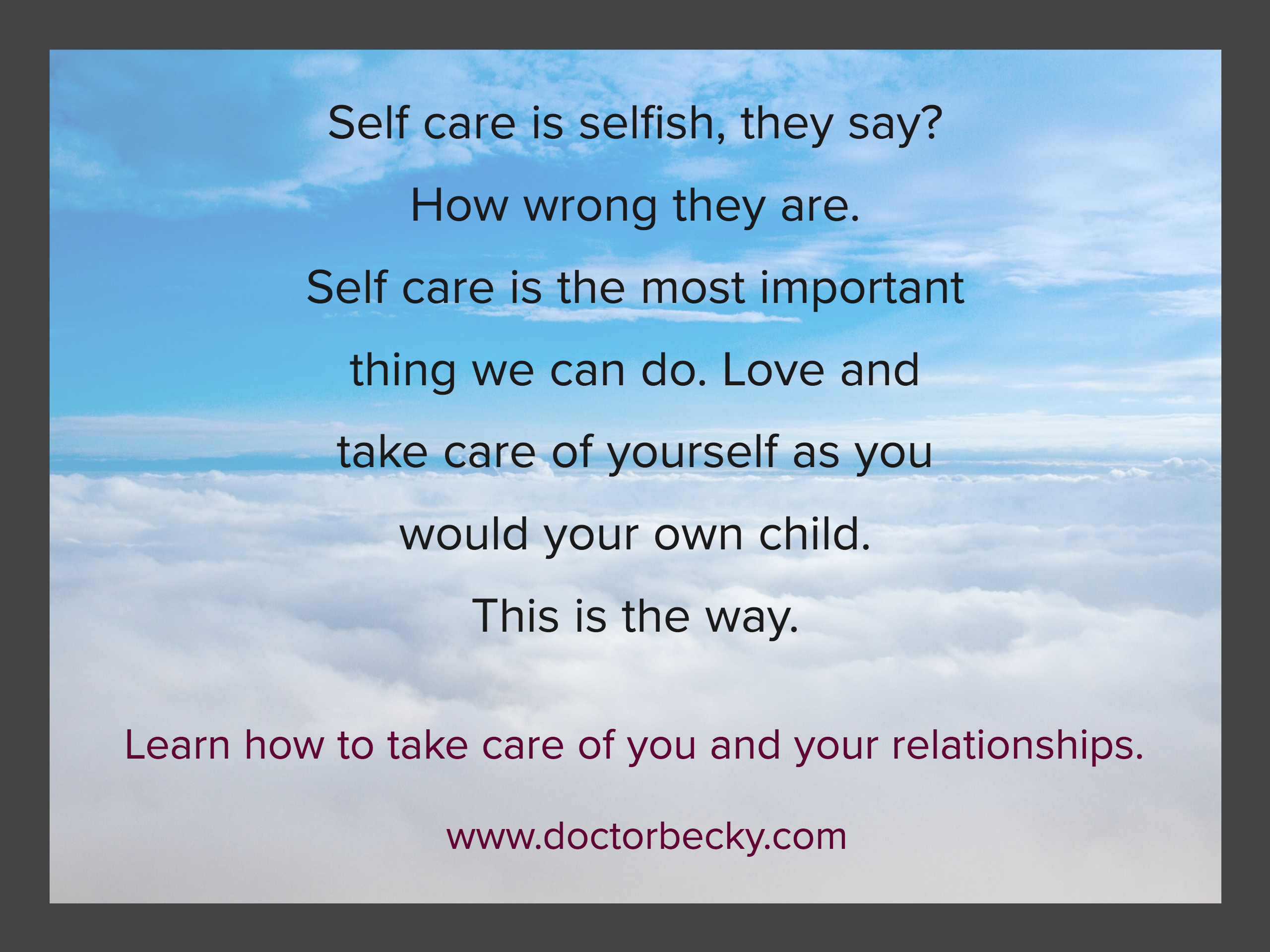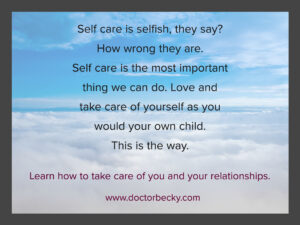Counseling & Therapy for Individuals, Couples, & Families in Little Rock, AR. Find out when therapy is indicated, Becky's … Learn More
Hi, for what it’s worth, I’m an Air BNB Super Host, so I’m familiar with the whole way it works.
There is no way a person reading your article can know the truth, as your story is yours, and the other sides to the tale aren’t told (by them). What catches my attention, however, is the many ways, and the tremendous effort you have put into telling your side, to achieve what? Injury to the other parties, perhaps? Revenge?
I have had great experiences with my guests, and have written only one negative review, and he too claimed to be clueless as to how he’d been a less than great guest. I gave him a long list; half-eaten food and bulging trash bags left piled around, no beds stripped as requested, no towels put in one place like we ask (it helps us find every towel, every sheet). Dirty dishes in the sink. it took us three times longer to clean after he left than any other guest. My thought about guests are, they need to treat your place as if they are staying at a good friend’s house, with extraordinary respect and care.
So your host made a mistake, why couldn’t you just be gracious and respectful and move on? I’m a therapist in my day job, and clients tell me stories all the time. I’ve learned that if the story doesn’t make sense, they’re leaving something out. Your story doesn’t make sense. Air BNB kicked you out because of no good reason?
What would make sense is if your reaction and response to your host was too intense, your protesting done in a scary way, which the host would report, and probably suggest that Air BNB not risk having you stay in their venues anymore. What would make sense is that Air BNB saw you as high-risk, a potential troublemaker.
I think the fact that you took your case to other web sites and posted the story again and again speaks to the fact that there is something in you that has to be right, and you have to be the victim here. You will not, or cannot see their point-of-view, and that in itself is dangerous.
There is a very common defense mechanism we see in the therapy room, it’s called, “Offending from the victim position.” This is when someone, who has clearly done something wrong, somehow manages to turn the tables on the person they wronged, while playing victim at the same time. I think that may be what’s going on here.

Affairs – A marriage therapist’s (honest) opinion.
It was his first visit, and my male client fidgeted as we went over his paperwork. Married over 40 years, grown children, grandkids, semi-retired with plenty of money, handsome and friendly face, he looked to be in great shape.
So, what’s the problem?
“I don’t know if I want to stay married,” he said. “I need you to help me decide what to do.”
Great. I like people to stay married if they can do so happily, so I listened as he described the verbal and emotional abuse, occasional slaps in the face from his wife, and how she seethed in contempt whenever he made attempts to connect, aka, have sex.
“This is not good,” I said. “Now I want to know whether she just started to behave this way out-of-the-blue, or have you done some things that have hurt her and the marriage that might cause her to feel contempt for you?”
“Uh,” he looked down at his hands. “Like what kind of things?”
“Things like ignore her, be a cheapskate, be controlling, judgmental, have affairs, be an asshole – any sort of stuff that we both know women hate.”
“I’ve done some of those things,” he said. “I’ve had many affairs, and I think she may have, too. When she yells, I yell back”
“Are you having an affair now?”
“Yes, but you can’t tell her. I saw in your paperwork that you don’t keep secrets if both spouses were to come in.”
“Well, that depends,” I said. “Are you in love with your lover?”
“I think I am,” he said.
And so it goes. When people are seriously contemplating leaving their spouse, they almost always prepare by lining someone up to fill the gap that the failing relationship will leave behind. After working with thousands of people over the years, I would say that it is true 99.9 times out of 100, though people in the 99.9 group will deny this until their last breath.
I really hate people to make a divorce decision when they are under the influence of a new and exciting relationship, especially when there are children involved. I have heard a joke among marriage therapists that when a person is having a mid-life crisis or affair, their IQ drops by 20 points, and to see how people make decisions and behave during these times, you might actually believe that it is true. I see part of my job to get people in an extra-marital love-trance, to make it through the craziness of euphoria-causing dopamine chemicals that course through their brain, without doing more damage than they have already done. It’s not easy.
My strong opinion is that a person cannot make a wise and thoughtful decision about much of anything when they are having an affair. I am well aware that the euphoric state cannot just be turned off like a bath faucet, so telling a person to end the affair and expect that to happen is a fool’s game. It takes time for the ecstacy of an affair to play out, and a person considering divorce needs to get to that place in order to not make some irreparably stupid decisions they will surely regret.
When I am working with a couple where one person is having an affair, it will go one of two ways – the cheating spouse will be so emotionally connected to his new amour partner and the drugged state it puts him or her in, that they won’t be able to resist the compulsion to reconnect despite promises and setting intentions to have no contact. The other possibility is that the spouse caught cheating is so mortified and ashamed of their affair, that they find it a relief to walk away. Guess which scenario has the best chance of marital recovery and reconciliation?
I looked at my client’s face when I talked about working things out with his wife, or to at least see if that was possible. He grimaced, and said that even mentioning working on marriage would likely end up with her to scream at him in outrage, “If you don’t like our marriage, then why don’t you leave!?”
No matter the circumstances, I told my client that I see affairs as an act of cowardice, of not having the courage to see if the relationship you have is one that can be renewed or repaired, before seeking someone else to fill the emotional and/or physical void you experience in the marriage. Deal with the relationship you have before you move on to be romantic with someone else. It must seem so easy for many to just plug the leaks of a sinking marriage with a new person, rather than do the hard work of facing the issues that are keeping two spouses from connecting in a healthy way.
In all the years I have seen adults and families, only twice has a spouse come in and told me they were contemplating having an affair. I laid out all the reasons not to do it, and gave them great advice: “Go tell your spouse you are so unhappy in the relationship that the thought of having an affair has actually crossed your mind.” If this doesn’t get their attention, nothing will.

If you’re not getting along with your spouse, don’t have an affair, get help for your marriage instead.
Of course, there are spouses who think it is all your fault that the marriage is unhappy, and others who absolutely refuse to go to marriage therapy. These stances are don’t leave much hope for growth and change, but you can always grow and change on your own and see if that doesn’t change the relationship. If you want to live a life of integrity and courage, then deal with the romantic relationship you’re in before muddying the waters with another.





 Becky Whetstone is an Arkansas native and has a Ph.D. in Marriage and Family Therapy from St. Mary’s University in San Antonio, Texas. She is a Licensed Marriage and Family Therapist (LMFT) in Texas and Arkansas.
Becky Whetstone is an Arkansas native and has a Ph.D. in Marriage and Family Therapy from St. Mary’s University in San Antonio, Texas. She is a Licensed Marriage and Family Therapist (LMFT) in Texas and Arkansas. 





















































































































